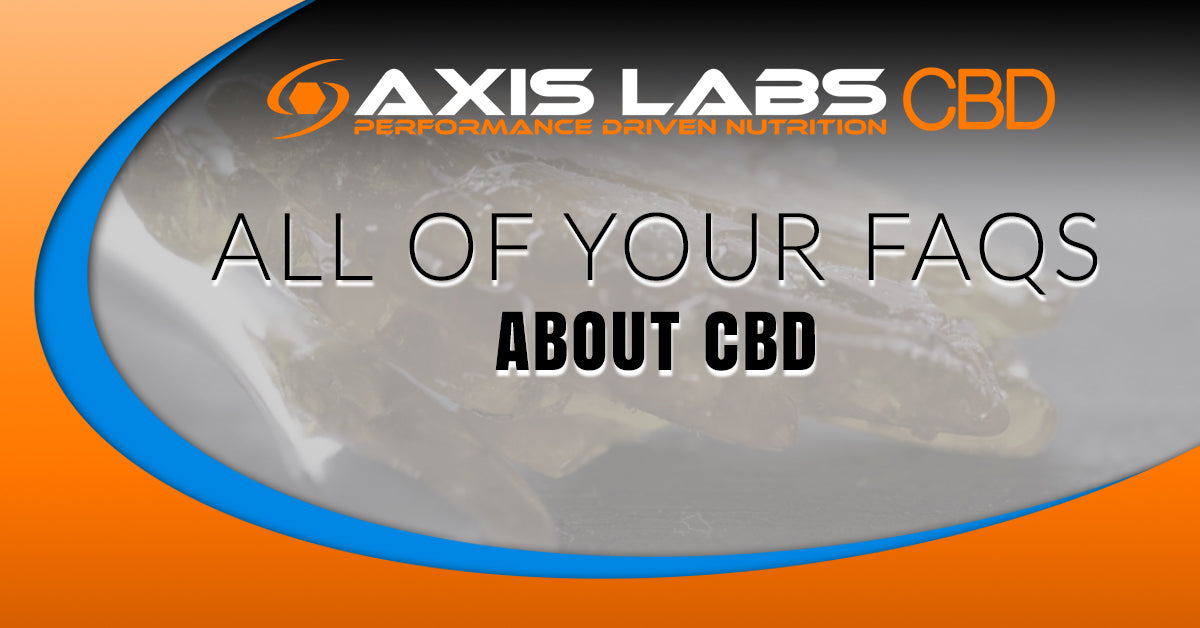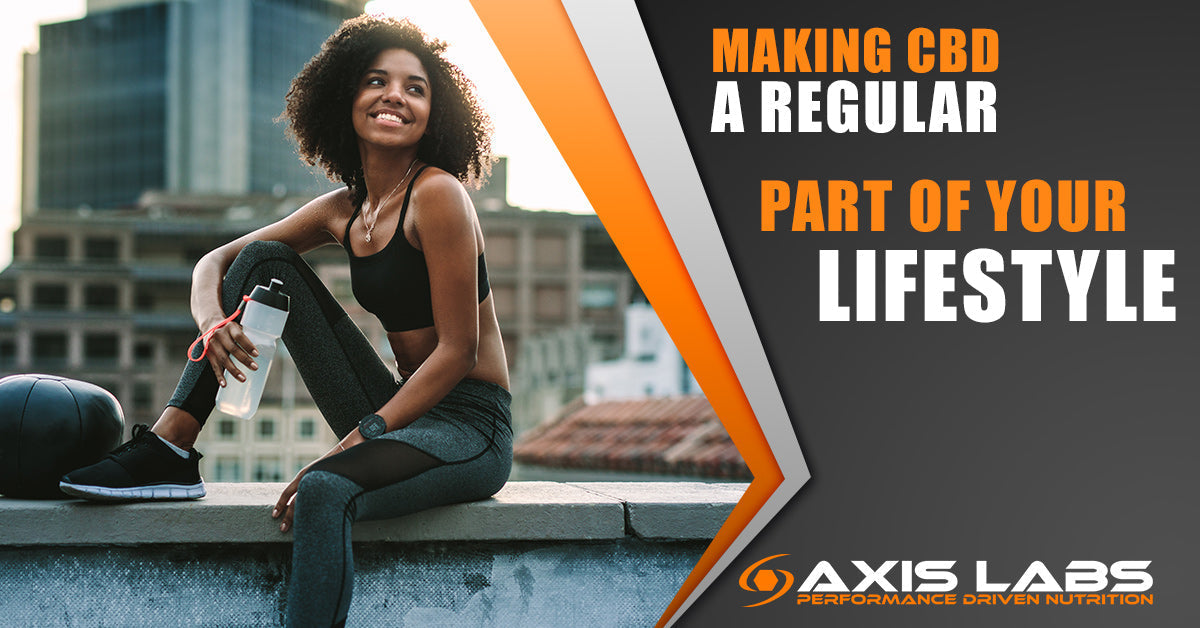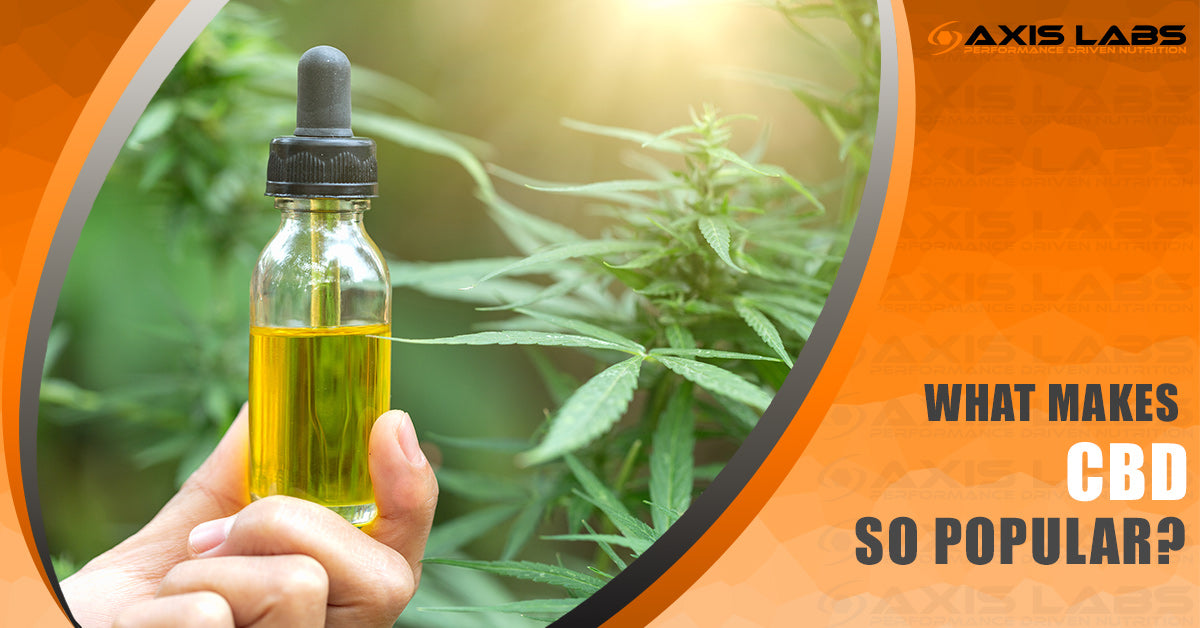Your Cart is Empty
FREE SHIPPING ON ORDERS +$49
FREE SHIPPING ON ORDERS +$49
More FAQs About CBD (Part 2)
3 min read

When it comes to CBD, there’s a lot to learn about. While humankind has been utilizing hemp for a myriad of reasons for literally thousands of years, it’s only recently that we’ve been doing any serious research into the effectiveness of the compounds that can be derived from this plant. The result is that we’re now acutely aware of CBD, but not always familiar with what it does and how it does it. In order to offer better products, and equally important, better information to our customers, Axis Labs has continued our FAQ blog series on CBD and its uses and effects.
What Does CBD Mean?
CBD is the abbreviation for the term "cannabidiol," a compound that is found with plants in the cannabis family. Varying amounts of this compound are found in different plants, like hemp or marijuana. Recent studies have found more and more uses for CBD, and this research has discovered that CBD could help to treat issues like anxiety, chronic pain, and even insomnia.
What Are Cannabinoids?
Cannabinoids are chemical compounds found natively within cannabis plants. Within the human body are receptors set up specifically to accept cannabinoids. These are your CB1 and CB2 receptors. These receptors are part of your endocannabinoid system, which helps to move energy and signals throughout your nervous system.
Is CBD Legal in the U.S.?
Yes, CBD is legal to produce, own, and consume in the United States. That said, not all forms of CBD are legal. Hemp-derived CBD is legal, thanks in part to the Farm Bills. But marijuana-derived CBD is not legal in every state. You’ll want to familiarize yourself with your local laws concerning marijuana. To avoid this hassle, it’s best to order only CBD products that have been derived from hemp.
Why Are the Farm Bills Important?
These bills, passed in 2014 and 2018 respectively, were instrumental in expanding the presence, production, and use of hemp products. The 2014 bill allowed for the cultivation and manufacture of industrial hemp and related products. The 2018 bill included the Hemp Farming Act. This act listed hemp as an agricultural commodity, allowing individual states the authority to review hemp production, taking that power away from the DEA. This made hemp legal nationwide.
Will I Be Able to Pass a Drug Test After Taking CBD?
Typically, drug screens are meant to detect the presence of THC, which is the psychoactive compound in marijuana. While CBD is the major compound in hemp-based products, there is still a trace amount of THC in industrial hemp, usually less than 0.3 percent. That said, the chance that you could fail a drug test after taking a CBD product, even with that trace amount of THC, is very low. If you’re still concerned, it’s not a bad idea to ask your employer what the drug test is screening for.
What Does Taking CBD Feel Like?
There’s no strict answer to this question. Some report feeling a sense of relaxation after using a CBD product. Others find that they feel calmer and focused. A reduction in "thought-noise" is evident for some, while others find that their chronic aches and pains are dulled. Your experience after taking a CBD oil, capsule, or tincture really depends on how much you take, the concentration of the CBD in the product, and how often you use it.
Lab-Tested For Quality
Don’t settle for just any CBD or hemp oil product. Instead, offer your body the best. At Axis Labs, we’re committed to offering the highest quality products possible. It’s why we start with a premium grade industrial hemp, and then lab test all of our CBD for purity and potency in a third-party lab. Our CBD oils, creams, and capsules are among the finest available. Order today!Also in Blog
Subscribe
Sign up to get the latest on sales, new releases and more …









